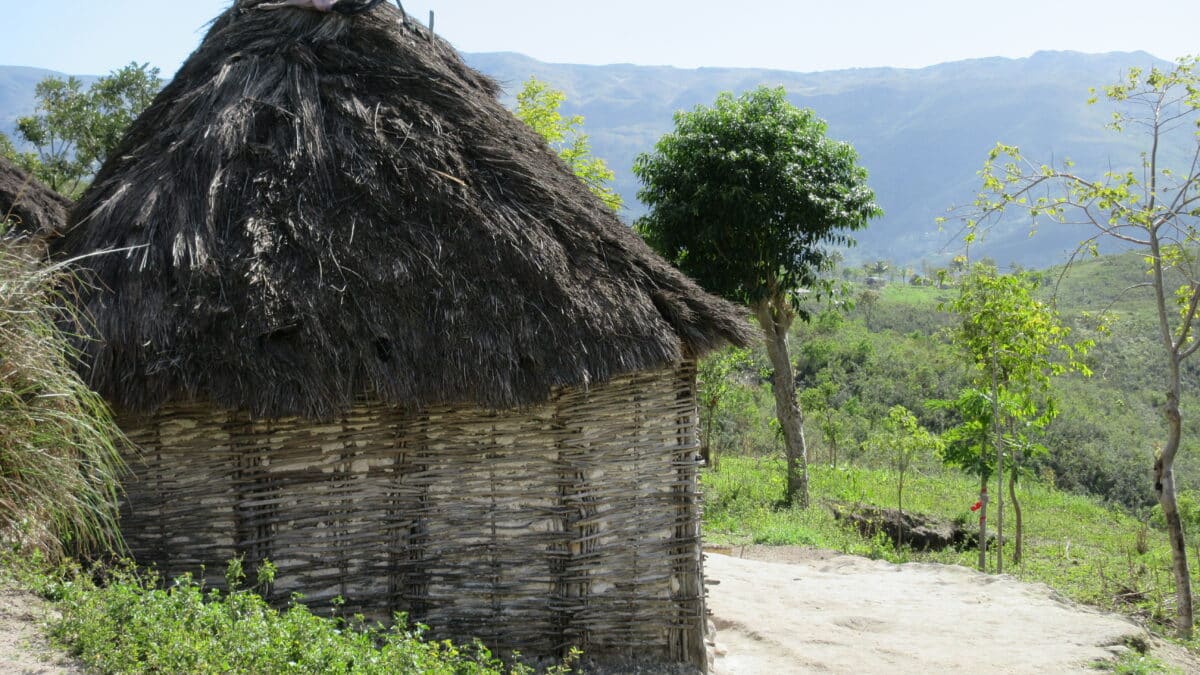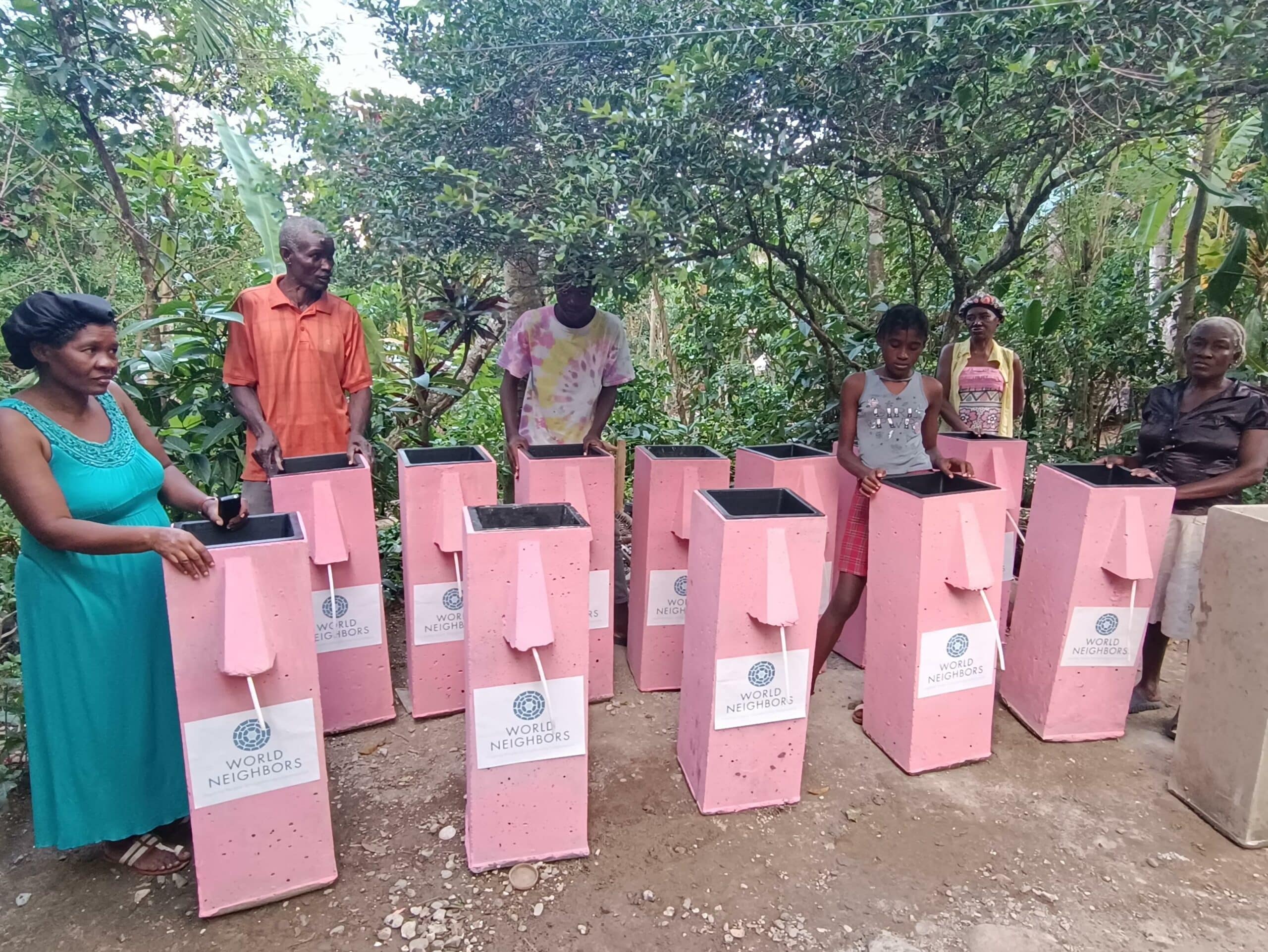Kate Schecter on The Global Development Primer podcast
February 20, 2024Combating Global Poverty, With Kate Schecter – The President’s Inbox
February 27, 2024In Haiti, Communities Help Themselves with Bio-Sand Filters

By Kate Schecter
Haiti continues to be challenged by government instability and gang violence. Basic services such as municipal electricity, clean water and sanitation are not available to communities in rural areas. The breakdown of water and sanitation can result in disease outbreaks, like the cholera infections that swept the island several times over the past decade.
As a result, communities often need to step in and provide their own clean water.
The good news is clean water can be obtained using inexpensive and easy-to-build innovations like bio-sand filters.
A bio-sand filter is a container the size of an office water cooler or larger. It has an inset plastic pipe and is filled with layers of sand and gravel. Dirty water is poured into the top of a filter, where a diffuser plate evenly distributes the water over the sand bed layer. The water travels down through the sand bed, passes through multiple layers of gravel, and collects in the plastic pipe at the bottom of the filter. The clean water then exits through the plastic piping for a family to collect.

Savius Sinclair attended a workshop held by World Neighbors and its local partners on how to build a bio-sand filter. Due to a lack of reliable clean water, his wife suffered frequently from diarrhea, vomiting and stomach aches. While less threatening than cholera, these “normal” gastrointestinal illnesses transmitted through unsafe water cause immense personal suffering. The constant illness prevented Savius’s wife and other members of his village from earning money by farming vegetables and selling them in local markets. Ill health causes people to be unable to work and in turn can perpetuate poverty.
With their bio-sand filter, Savius wife is much healthier. He and his wife now drink clean water and can engage in regular work and other normal activities. Savius can monitor and clean the filter on a regular basis to insure a sustainable supply of clean water. Their income is stable. They and other farmers in their community are also learning simple organic farming techniques to increase output and quality and cut input costs. All 17,000 people in Savius’s farming community have expressed a desire for bio-sand filters.
Haiti has many needs. Even with its current challenges, providing access to clean water to reduce illness and facilitate economic activity is entirely possible. Inexpensive innovations like bio-sand filters are one way to do it.
EDITOR’S NOTE: Kate Schecter is President and CEO of World Neighbors.
This article originally appeared on NewsAmerica.com on February 21, 2024.

